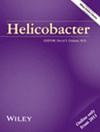Optimization of Minocycline-Containing Bismuth Quadruple Therapy for Helicobacter pylori Rescue Treatment: A Real-World Evidence Study
Abstract
Background
The optimal dosage of minocycline remains unclear for Helicobacter pylori (H. pylori) eradication. We aimed to evaluate the efficacy and safety of four different regimens with minocycline and metronidazole compared to classical bismuth quadruple therapy for H. pylori rescue treatment.
Materials and Methods
From March 2021 to March 2024, refractory H. pylori-infected patients with at least two previous treatment failures who received 14-day therapy with b.i.d. proton pump inhibitor 20 mg and bismuth 220 mg, plus tetracycline 400 mg q.i.d and metronidazole 400 mg q.i.d (BQT), or minocycline 50 mg q.i.d and metronidazole 400 mg q.i.d (PBMn4M4), or minocycline 50 mg t.i.d and metronidazole 400 mg t.i.d (PBMn3M3), or minocycline 50 mg b.i.d and metronidazole 400 mg q.i.d (PBMn2M4), or minocycline 50 mg b.i.d and metronidazole 400 mg t.i.d (PBMn2M3) were included in this retrospective study. H. pylori eradication was assessed by 13C-urea breath test at least 6 weeks after treatment. All adverse effects during treatment were recorded.
Results
Totally, 823 patients were enrolled: 251 with BQT, 97 with PBMn4M4, 191 with PBMn3M3, 108 with PBMn2M4, and 176 with PBMn2M3. The eradication rates of BQT, PBMn4M4, PBMn3M3, PBMn2M4, and PBMn2M3 were 89.2%, 87.6%, 91.6%, 88.0%, and 91.5%, respectively, by intention-to-treat analysis; 96.1%, 97.7%, 97.8%, 96.9%, and 97.6%, respectively, by modified intention-to-treat analysis; 97.1%, 97.5%, 97.7%, 96.8%, and 97.6%, respectively, by per-protocol analysis. Metronidazole resistance did not affect the efficacy of all groups. PBMn2M3 group achieved the greatest compliance and the fewest moderate and severe adverse events.
Conclusions
The novel bismuth-containing quadruple therapy with a low dose of minocycline and metronidazole is an alternative to classical bismuth quadruple therapy for H. pylori rescue treatment with superior safety and compliance.
Trial Registration
ClinicalTrials.gov identifier: NCT06332599

 求助内容:
求助内容: 应助结果提醒方式:
应助结果提醒方式:


